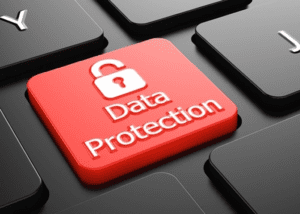In the telecommunications industry, automated video marketing has emerged as a powerful tool for engaging customers, delivering personalized content, and driving conversions. However, as telecom operators increasingly leverage customer data to tailor video experiences, data security and privacy concerns have become central to every campaign. Protecting sensitive user information is not just a regulatory requirement—it is essential for maintaining trust and sustaining long-term customer relationships.
The vast amounts of personal and behavioral data collected in telecom video marketing campaigns create both opportunities and risks. Operators can use insights from viewing patterns, engagement metrics, and customer preferences to optimize content, increase engagement, and deliver highly targeted offers. At the same time, mishandling this data can result in breaches, regulatory fines, and significant reputational damage. Therefore, understanding the unique data landscape in telecoms is critical for any organization pursuing automated video marketing.

Understanding the Data Landscape in Telecom Video Marketing
Telecom video marketing generates a complex ecosystem of data. Beyond basic subscriber information, operators collect behavioral insights, location data, and usage patterns. This rich data environment enables highly personalized marketing but also raises significant privacy concerns. Customers increasingly expect transparency about how their data is collected, stored, and used.
Telecom marketing strategies now need to balance personalization with privacy. Marketers must consider consent management, data retention policies, and compliance with global and local regulations such as GDPR, CCPA, and industry-specific guidelines. Failure to adhere to these standards not only exposes companies to legal risks but also erodes customer trust, which is especially critical in competitive markets where privacy-conscious consumers have alternatives readily available.

Protecting Customer Data in Automated Video Marketing
Ensuring customer data protection in automated video campaigns requires a multi-layered approach. At the most fundamental level, sensitive data should be encrypted both in transit and at rest. Access controls and authentication mechanisms must restrict data to authorized personnel only. Regular audits and monitoring help detect unusual activity or potential breaches before they escalate.
Automation can also help enforce security policies consistently. For example, automated workflows can ensure that only anonymized or aggregated data is used for personalization, reducing the risk of exposing personally identifiable information (PII). Additionally, robust data governance frameworks provide clear guidelines on how data is collected, stored, and used across the marketing ecosystem.

Data Privacy Best Practices in Telecom Video Marketing
To maintain trust and comply with regulations, telecom operators should adopt best practices that go beyond basic compliance:
- Consent Management: Obtain explicit consent from customers before collecting or processing personal data. Ensure that opt-in and opt-out mechanisms are clear and easy to use.
- Data Anonymization: Whenever possible, anonymize user data to reduce privacy risks while still allowing meaningful analysis.
- User Data Protection: Implement strong encryption standards, access controls, and regular security audits to prevent unauthorized access.
- Transparent Policies: Clearly communicate data usage policies to customers, including how data is collected, stored, and used in video marketing campaigns.
By following these practices, telecom companies can leverage automated video marketing effectively without compromising the privacy and security of their customers.
Conclusion
Automated video marketing in the telecommunications industry offers tremendous opportunities for personalization and engagement, but it also comes with heightened responsibilities. Data security is not just a technical requirement; it is a critical component of customer trust and brand reputation. By understanding the data landscape, implementing strong protective measures, and following privacy best practices, telecom operators can harness the full potential of video marketing while safeguarding customer information.
In an era where data breaches and privacy concerns dominate headlines, proactive management of data security and privacy in automated video campaigns is essential for long-term success. Telecoms that prioritize these measures will not only comply with regulations but also create loyal, trusting, and engaged customer bases.






